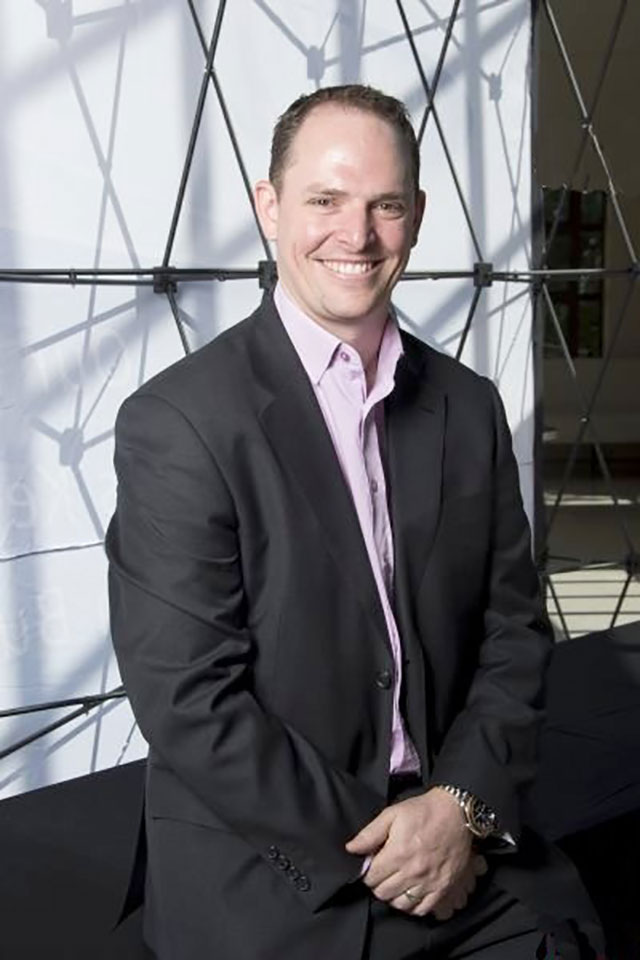
Brian Timperley spotted a business opportunity in the IT support space to service small businesses that his competitors considered not profitable. He shares his journey to running Turrito Networks…
What problem existed in the market?
BT: Service delivery remains a massive challenge in the Telecoms market, specifically when it comes to SME businesses. SME customers battle to get any level of guidance and support, and are considered by the majority of Telecom providers to be too small to service. We intended to deliver exceptional service and support to the SME market and make it far easier for them to navigate the communications market for their businesses.
What solution did you provide?
BT: We provided an agnostic and neutral approach to Telecoms, offering all the networks, and all the solutions from a single provider. We reinforced this offering with exceptional service through a call centre manned by network architects, rather than entry-level support engineers.
How did you know people would pay for your solution?
BT: I guess the reality with any new business venture is that you don’t know… but you have to try anyway.
How did you attract customers to your startup?
BT: Initially it was just hard yards… my business partner Louis and I meeting with as many people as we knew, getting referrals to as many others as we could, and cold calling the rest. It was purely getting our heads down and trying to showcase our value to as many businesses as possible.
How were you different from the competition?
BT: Very much so, and often in ways, we didn’t realise. We started by offering all solutions from a single provider, which gave our customers far more choice than through our competitors. We offered far higher skill sets in our support centre so that customers felt a more personal touch and expertise to their issues. What we didn’t realise is that our approach to invoicing was one of the greatest differentiators versus our competitors. We implemented a method of invoicing “exactly as the contract is signed”, meaning when our customers receive an invoice, they could match it to their signed contract line for line… even in the same order. Our customers loved the simplicity and ease, having dealt with the extremely complex and error-prone invoices from the industry in general.
How much capital did you invest in your startup?
BT: We managed to secure a substantial investment from JSE listed business, MICROmega, which enabled us to grow quickly and have access to working capital as required. The initial investment was relatively small versus our growth, and the business broke even within the 1st year which certainly gives investors confidence in the investment.
Where did you get money to fund your startup?
BT: We initially approached every investment house and venture capitalist we could get an introduction to, over several months, in search of an investor. The challenge, in honesty, was not finding money… there was plenty of that. The challenge was more to find the right investor, with the right investment appetite. For the majority of investment businesses we approached, our investment amount was too small (most offered funding between R25 Million and over R100 Million. We needed a far smaller investment than those amounts. Ultimately, a chance meeting with the right people at the right time resulted in our opportunity to pitch to MICROmega… and the rest is history.
How long did it take for your startup to break-even?
BT: At an operational level, we broke even within the first year, which we believe is unusually early. However, our investment from MICROmega continued in many other areas of the business, even after breakeven. MICROmega continued to back our business with new acquisitions, new product development/innovation, and rapid expansion.
Startups are launched in bedrooms, garages, kitchens, dorms etc…where did yours operate from in the early years?
BT: I’d have to say the early days (not years), from my patio mainly… and the occasional coffee shop. We were fortunate enough to secure funding within the first month or 2, which meant we were based in actual offices in Sandton.
When was the turning point, where it was all clear that your startup has prospects
for growth?
BT: Louis and I used to ring a bell and high-five every time we closed a deal. Eventually, it was too painful to keep high-fiving, and we started employing salespeople… it was around that time we felt one of the first turning points, but there were many more to come.
Businesses evolve just like humans, share those stages of your startup lifecycle…
BT: I’d say you can liken the evolution very broadly to that of a Human. You start not knowing what you are doing, crying a lot and having the occasional tantrum. Later you get a feel for what you’re good at, and what you’re not, and you find your feet a little. You fall off swings, get bullied, fight back. Some teachers are great, others teach you the wrong things. If you’re lucky enough to survive the early growing years, you can end up in some solid business relationships, with a nice home and little business offspring who cost your investors a lot of money but are also very exciting. You need to try and stay healthy and active, pass on your experience to those new growing businesses before… you get the idea.
With startup growth, new opportunities come up…investors come knocking or you simply sell, what has motivated you to keep going?
BT: I love what I do… the moment I no longer do, I will do something else. There are a lot of things that grow a business successfully, but I guarantee if you if the people within a business no longer have a passion for it, it’s gone. The slogan from the telecoms business Louis and I left to start Turrito has stuck firmly with us since then… Do what you love, and love what you do! Thanks, Ronnie.
Looking back to when you launched your startup, an idea is something else to running a business…how did you pay your school fees?
BT: Often everything is such a blur after starting a business, you just roll your sleeves up and do everything you can to make it work, and sometimes you have no idea how far you’ve travelling. Basic ideas like “make more money than you spend” and “have more customers today than you did yesterday” are things that keep you focused on the basics. The one thing guaranteed is that you will make mistakes and a lot of them! If you learn from them quickly and adjust, you will grow… if you don’t, well then more lessons will be thrown at you. My favorite quote in business… “What makes a good businessman? Good decisions! How do you learn to make good decisions? Maturity! How do you gain maturity? Bad decision!”
What legacy has this startup that you’ve nursed into maturity has built over the years?
BT: It’s still early days, but I’d certainly say we’ve proven that if you assemble a group of people who love what they do, and are very good at it…. You’re a long way down the road to building a successful business. I think we’ve done a lot of things very differently in the market, and in so doing worried our competitors, excited our investors and partners, and hopefully continue to do so for many many years.
What are your impressions of the startup scene today, compared when you ventured into entrepreneurship?
BT: I think the challenges faced today are very different from those from 10, 20 or 100 years ago as an entrepreneur, but they will always be there. I don’t think it ever gets easier or harder over time, but I certainly do believe that the entrepreneurs of today would most likely have failed 50 years ago and visa Versa. Timing is massively influential in these ventures… some refer to it as “luck”.



